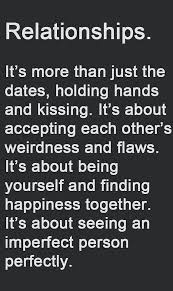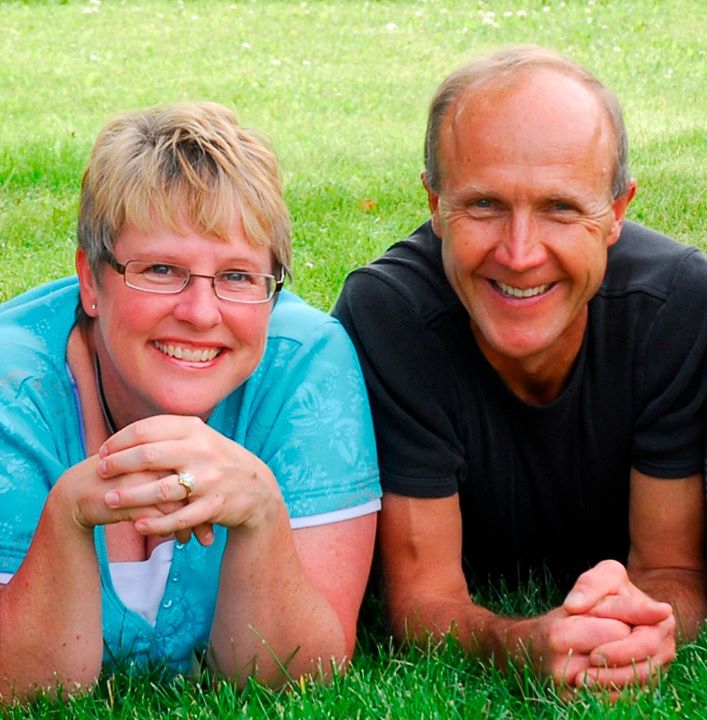On my way home from Edmonton, I stopped into a large grocery store to pick up some items. We mostly support our local businesses in Sangudo, so this was unusual for me.
I was intrigued by a section of the produce department that was marketing “Naturally Imperfect” items. There was something about the attributes of the fruits and vegetables that was deemed sub-standard to what they should be.
To me, this is genius because it allows people to purchase perfectly nutritious food that might otherwise be wasted. If you check on statistics, you’ll learn that, worldwide, as much as 30% of food produced is wasted – far more than enough to feed all who are impoverished.
It’s perfect to be naturally imperfect
This is a great metaphor for what happens in our relationship with ourselves and our life-partner. We unnecessarily waste a huge amount time, treasure, and talent either trying to be perfect, or expecting ourselves and our partner to be perfect.
You might be thinking, “Not me, Dan. I don’t strive for perfection in myself, and I surely don’t expect anyone else to be perfect. Perfection is unattainable.”
That may be true consciously. However, at an unconscious level, there is a different game going on, isn’t there?
Example:
In my mind, I have a perception that I should live up to very high standards I’ve set for myself. And Carol? I’ve got pretty high standards for how she should think, speak, act, feel, and even look. These standards may not be perfection, yet they are measures of excellence. Tough to achieve, yet standards to strive for.
The bigger challenge is, if I’m not meeting my standards, I will search out imperfections in Carol. Naturally, it’s easy to see her imperfections. I’ll think about them (over and over), magnify them in my own mind so they are even worse, and probably tell her about them, either outright or in under-handed little insinuations.
Good for the quality of our relationship? Results would dictate a solid “NO.”
Yet, if I were to step back from the situation as an observer, this situation allows me to feel better about myself because at least I’m not as bad as her.
OK, be honest. Does this seem familiar for you?
It’s perfect to be naturally imperfect
Overcoming this, takes being totally honest with myself, and admitting this is not about Carol, it is about me. Anger, frustration, and disappointment are not about her imperfections but my own, and my perceived failure to meet my own standards.
With that realization, I can forgive myself for the exaggerated stories I’ve built in my mind about Carol’s imperfections and recognize her amazing talents, abilities, skills, and beauty. It’s even more powerful when I acknowledge her and celebrate her for those attributes.
 I can forgive myself for the exaggerated stories I’ve built in my mind about my imperfections and instead recognize the talents, abilities, and skills I have. It’s even more powerful when I acknowledge and celebrate myself for those attributes.
I can forgive myself for the exaggerated stories I’ve built in my mind about my imperfections and instead recognize the talents, abilities, and skills I have. It’s even more powerful when I acknowledge and celebrate myself for those attributes.
It’s perfect to be naturally imperfect
I am NOT saying that we drop our standards of excellence. I AM saying that we continue to strive for excellence, yet be gentle, kind, and loving. This might seem tough to do, but it gets easier with practice.
It’s perfect to be naturally imperfect
I must be a slow learner. I’ve been practicing this for a long, long time. I practice it with myself, Carol, our kids, neighbours, and volunteering colleagues in my community. Yet, I still find myself slipping into the “expectation of perfection syndrome” occasionally.
What works?
Here are some hints:
- First thing in the morning, I look in the mirror, smile, and say (either in my mind or out loud), “Today is going to be the best day ever!”
- Breathe slowly and deeply, aware of the feeling of the air going in, and out.
- Notice and appreciate the wonder in every little detail I see (sunrise, trees, clean water and air, my physical flexibility and ease, my clear mind, snow, rain, etc).
- When Carol arises, I hug her warmly and genuinely, and tell her I love her.
- I look for and acknowledge Carol (and others) for specific attributes I notice about what they are doing, or who they are as human beings. Specificity is important.
- I recognize myself for my attributes and strive to improve a little bit every day.
Here’s the deal: This is all about conscious CHOICE and ACCOUNTABILITY.
I get to choose to be a victim of my thoughts of imperfection. Or I can choose to own my thoughts, words, actions, and results. For me, it is a simple choice.
It’s perfect to be naturally imperfect
What about you? I’d love to know how you see this, your thoughts, and how you feel about your results.
I know this is not easy and if you struggle with it, you’re not alone. Let’s have a conversation, shall we?


